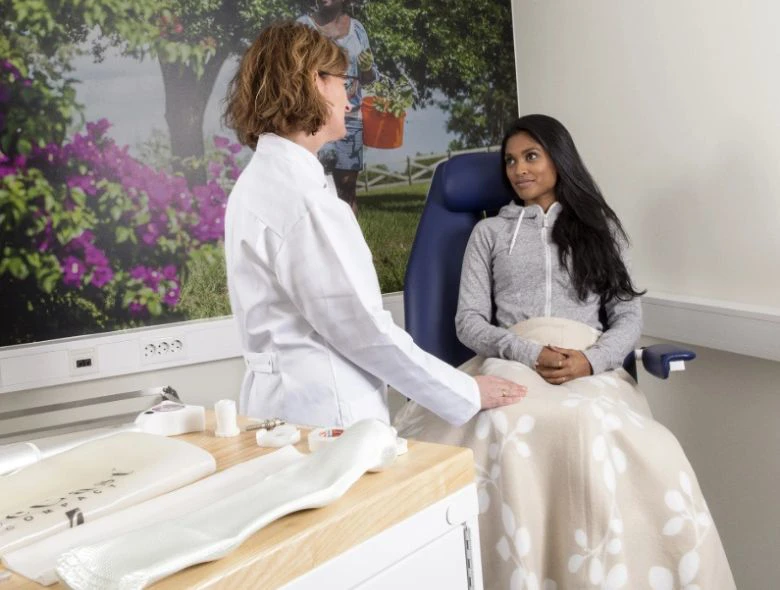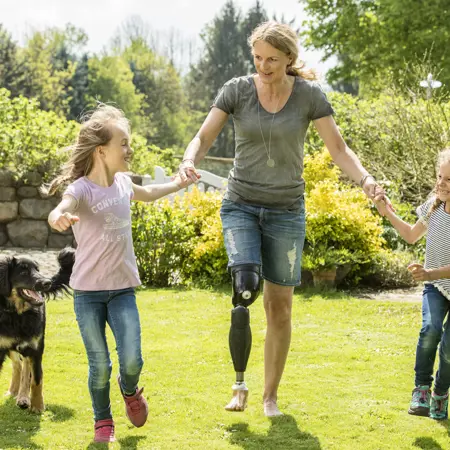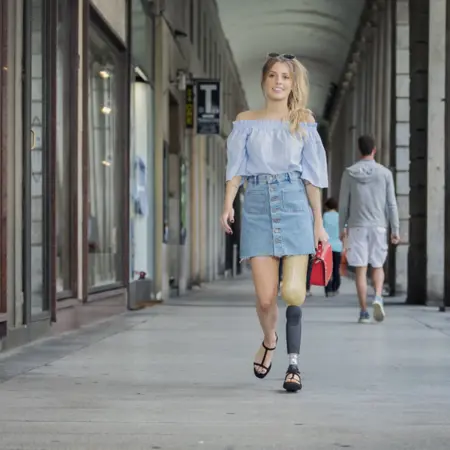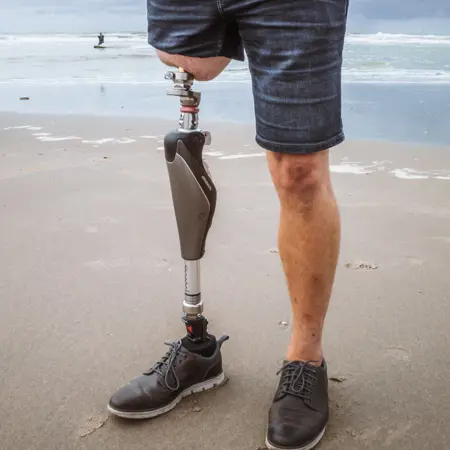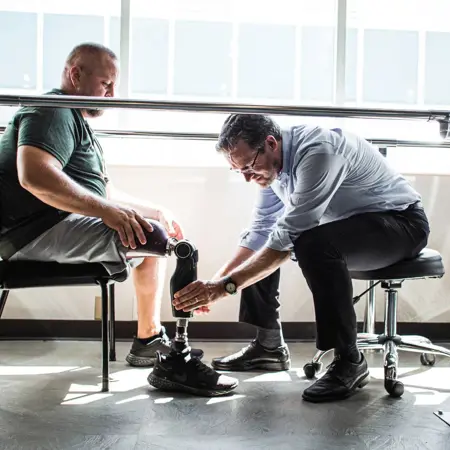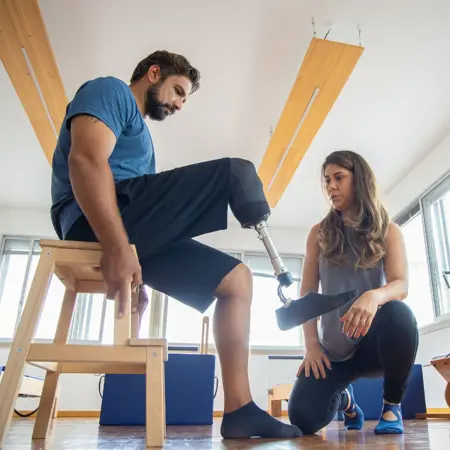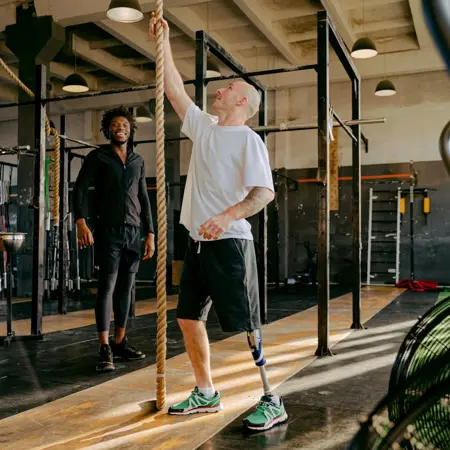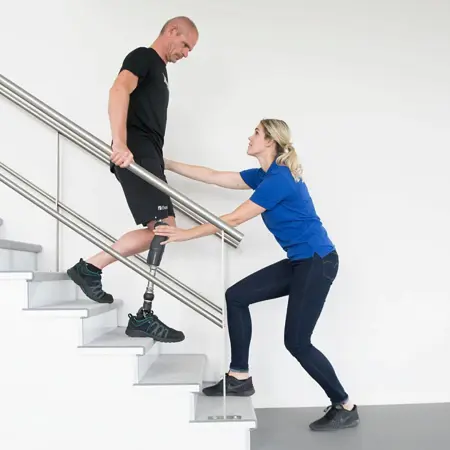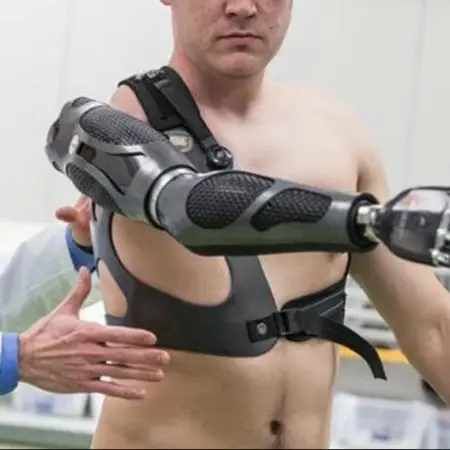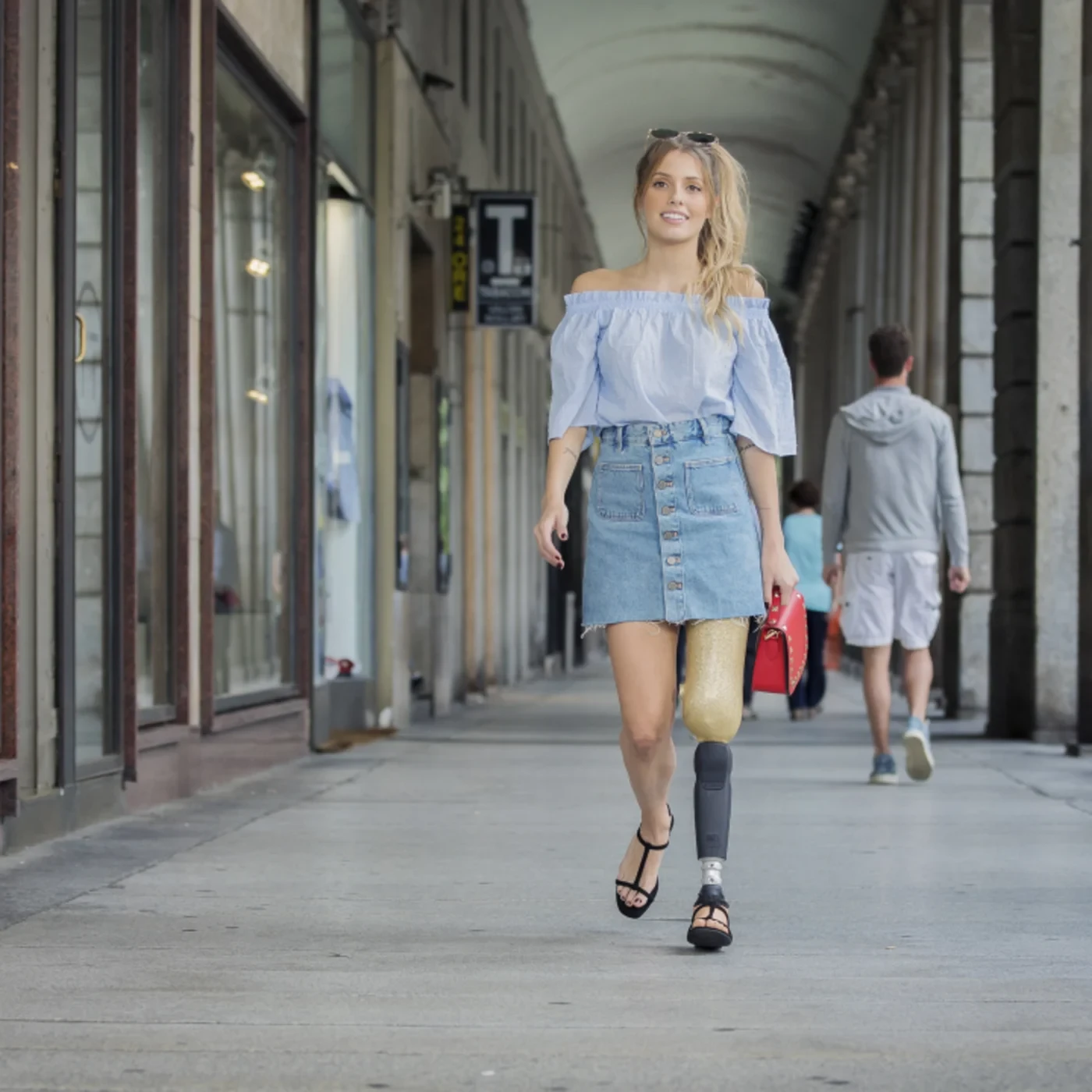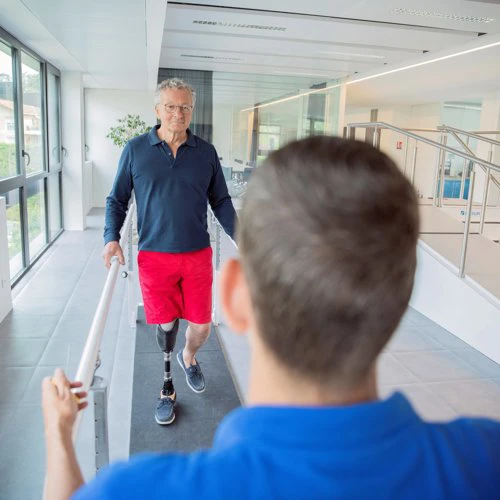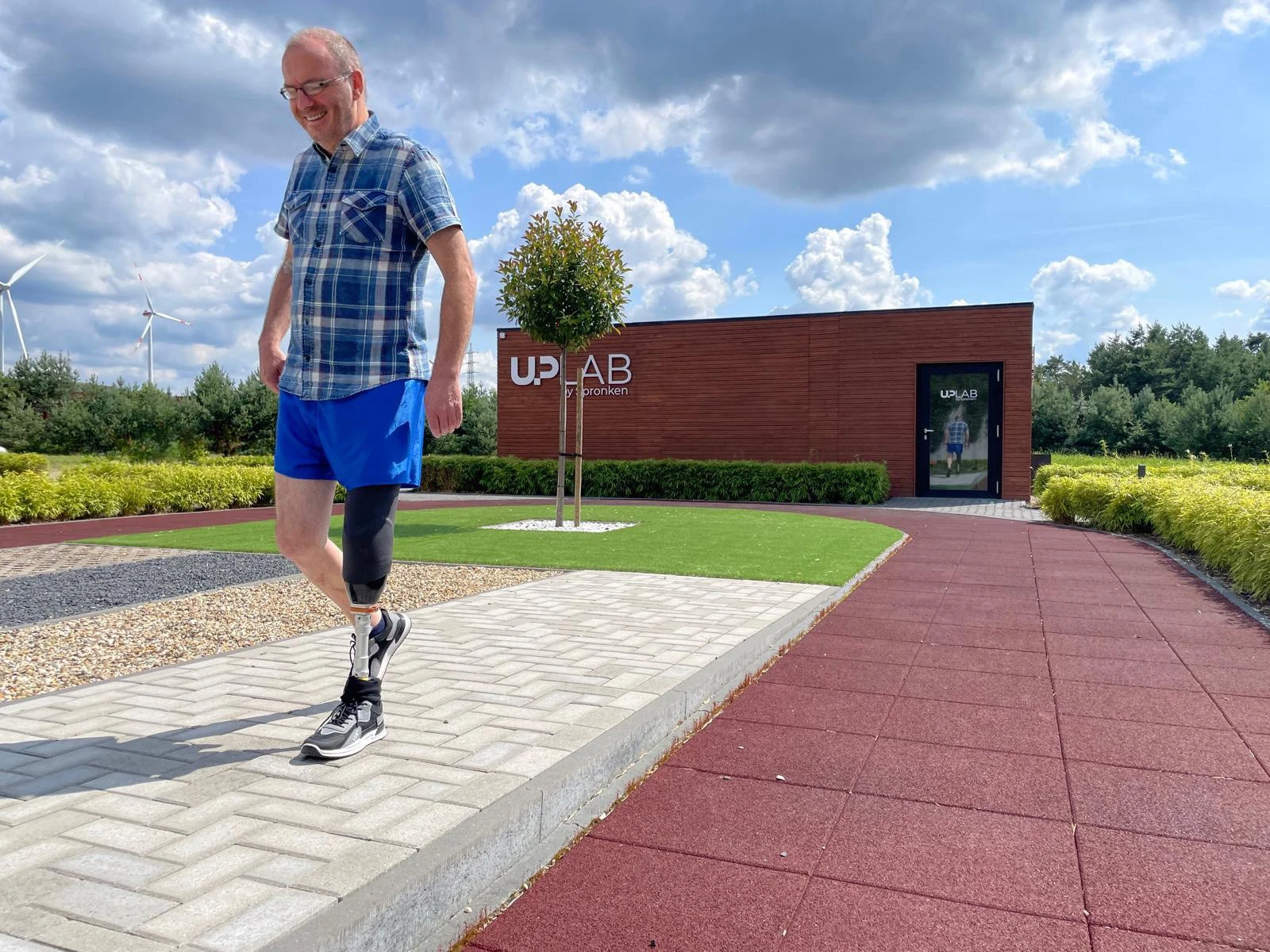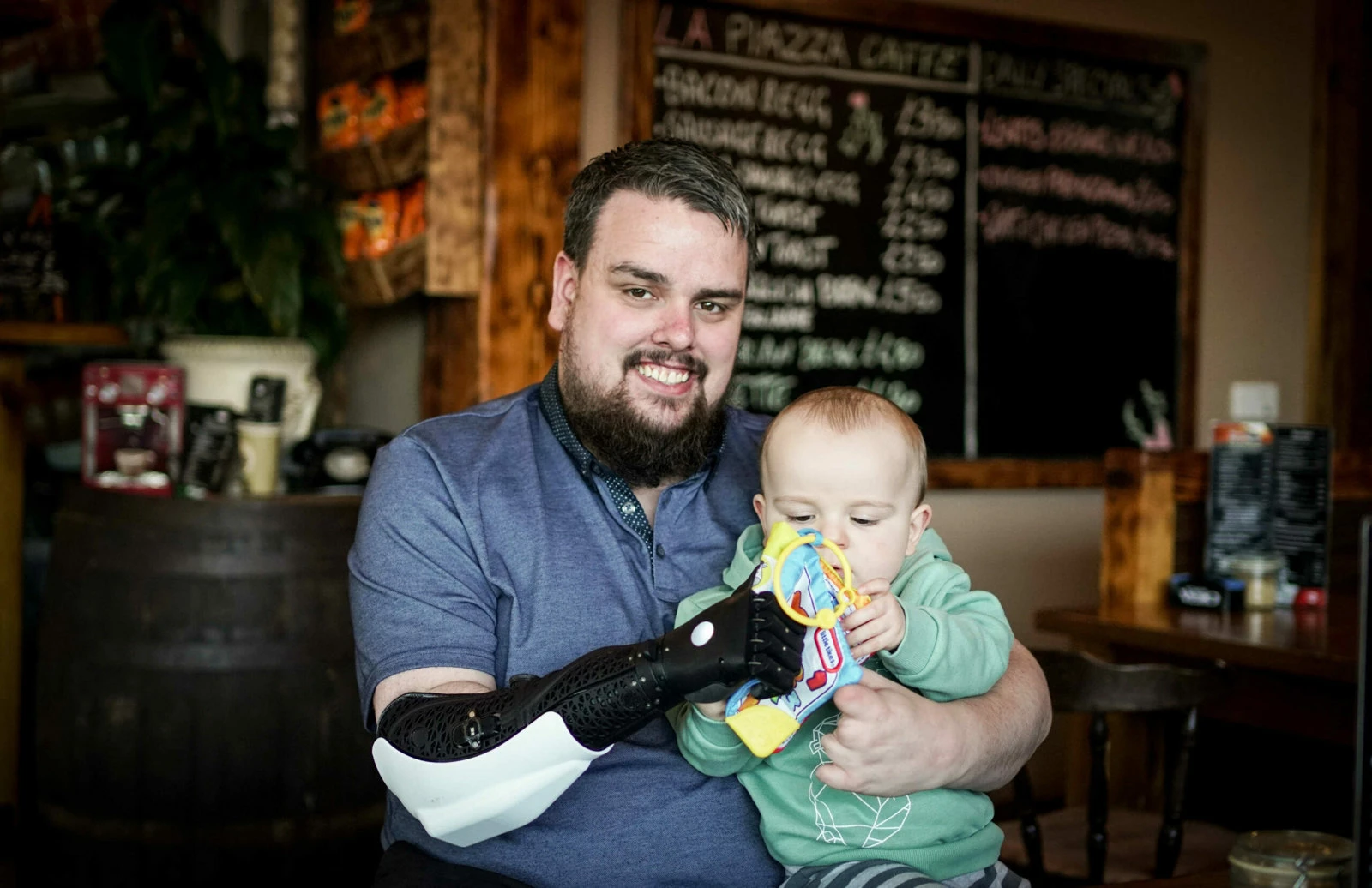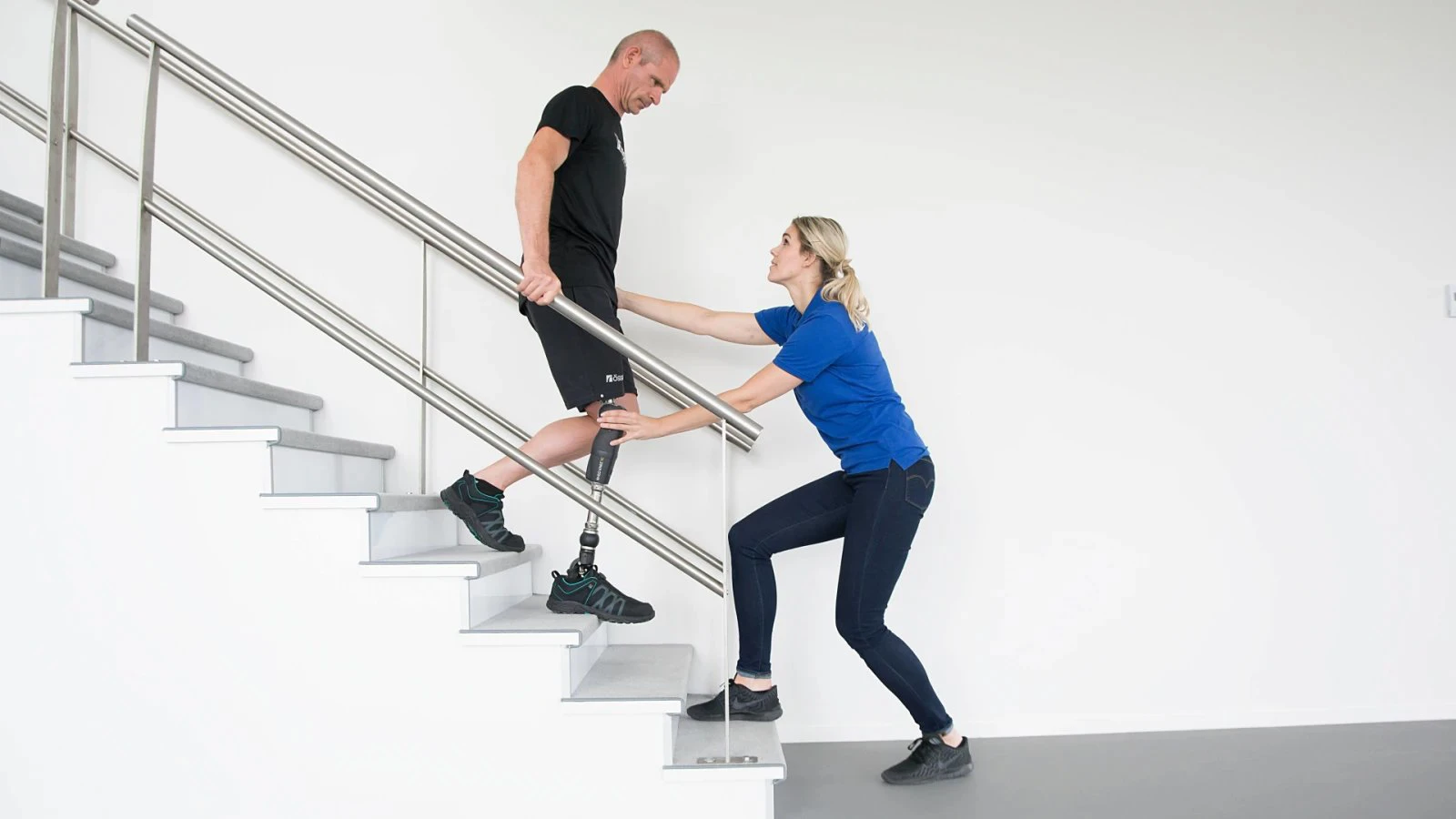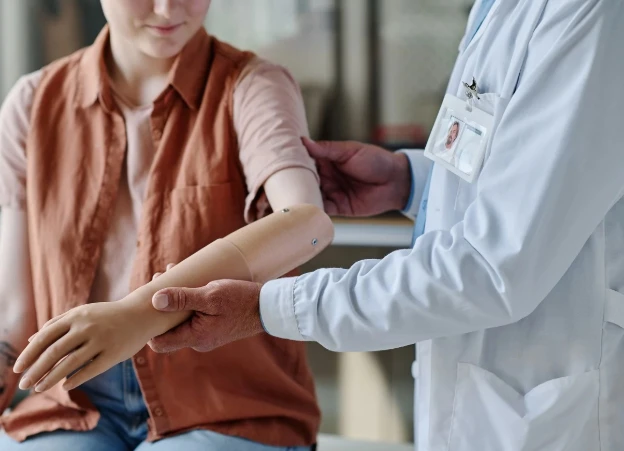It is best to prepare well before the amputation. Choose your own prosthetist! Every patient in Belgium and the Netherlands has freedom of choice. Start by making an appointment at the prosthetic centre, the orthopaedic company that will make your prosthesis. This is advisable because good preparation gives you confidence, shortens waiting times and makes the transition to a prosthesis smoother. Here is an overview of what you can do and how the process usually works at our Amputee Care Center in Belgium:
1. Make an appointment for an introductory meeting
- Make an appointment with the Amputee Care Center prosthetics centre. We offer a free pre-op consultation to introduce you to options, materials and costs/reimbursements.
- Ask our orthopaedic technologist prosthetist bandager to provide you with comprehensive information about the types of prostheses (passive, myoelectric, bionic, MCK knee, cosmetic, functional), their expected functionality and limitations.
2. Submit your prescription/referral letter to us.
- Referral/prescription: Ask your surgeon or rehabilitation doctor for the medical prescription referral for your first prosthesis before the operation. Submit your referral/medical prescription to Amputee Care Center. This will allow us to start the administrative process (insurance, indication assessment) in advance, so that there is no waiting time after your operation.
- Insurance & financing: Approval for reimbursement from your insurance company is often required in advance; we need the prescription for this.
- Make sure you provide us with all the necessary information: the (original) medical prescription/referral, your medical details and contact information. We will create the administrative file so that you can prepare for the amputation without any worries.
- You can bring in the original prescription or send it to us by post.
- A quick administrative start-up shortens waiting times and ensures a smooth process immediately after the operation.
Tip: many people think that you only arrange everything after the amputation, but it is much more efficient to have everything ready in advance, both administratively and medically. This way, you can try your first prosthesis within a few weeks after healing.


